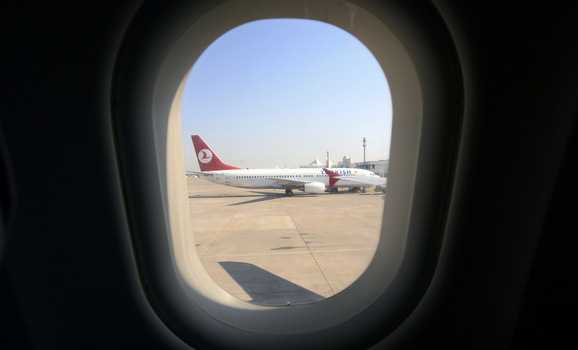Israel is poised to accept a British plan to ease its blockade of Gaza in exchange for international acceptance of a watered-down investigation into last week’s deadly raid on a Turkish aid ship, sources said on Tuesday.
By Adrian Blomfield in Jerusalem and Alex Spillius in Washington
Published: 10:00PM BST 08 Jun 2010
Britain is understood to have taken a leading role in the negotiations and last week circulated a confidential document proposing ways of easing the blockade, according to Western officials familiar with a draft version of the report.
Facing growing international criticism over the humanitarian situation in Gaza, Israeli officials said that would agree, in principle, to permit the passage of substantially more aid through Israel’s land crossings with the Hamas-controlled territory.
Related Articles
-
International donors pledge more than £3bn to help rebuild Gaza
-
Israeli navy boards Lebanese boat trying to break Gaza blockade
-
Human rights activists ‘arrested’ off Gaza coast
-
Netanyahu defies Barack Obama’s calls for halt to West Bank settlements
-
Amnesty International urges Barack Obama to suspend military aid to Israel
-
Gordon Brown to meet Palestinian president Mahmoud Abbas
Since the Islamist group seized control in 2007, Israel has allowed only basic humanitarian supplies into Gaza, while forbidding the importation of most electronic and construction materials that it says could be used by Hamas for military purposes.
While aid agencies will welcome a relaxation of the rules, others, particularly Turkey, will be concerned about the price exacted by Israel. They fear the trade-off will mean that Israel is never held to account for the nine deaths on board the Mavi Marmara, the lead ship in an international flotilla that tried to break the naval blockade of Gaza last week.
Israeli officials denied there was any direct link between their willingness to cooperate over the blockade and the apparent ebbing of Western support for a UN-led international inquiry into to flotilla raid.
But a Western source close to international discussions with Israel said: “A quid pro quo deal is in the offing”.
William Hague, the Foreign Secretary, also hinted that pressure for a UN investigation was easing by declaring that “an inquiry with an international presence” might be acceptable.
The Israeli government has proposed conducting its own judicial investigation, possibly in the presence of one or two American observers, but has ruled out questioning soldiers or officers involved in the raid.
According to Western sources, many of the British proposals have been adopted by the Quartet on the Middle East peace, the negotiating body that comprises the UN, the United States, the European Union and Russia.
They include calls for Israel to abandon its official list of 35 items whose entry into Gaza is allowed in favour of a list of specifically outlawed items.
Israel has also been asked to ease access into Gaza at its land crossings, where there are frequent bottlenecks, and to allow the UN to transport construction materials and equipment needed to rebuild 60,000 homes destroyed or damaged during the Gaza war of December, 2008.
The Israeli government is understood to have signalled its acceptance of most of these conditions.
“Israel could be flexible about items reaching the civilian population,” an Israeli official said.
He added that some construction materials like cement, which could be used to construct military bunkers, could be allowed in under “third-party” guarantees, meaning that the UN would be responsible for ensuring that such materials did not fall into the hands of Hamas.
But one part of the British proposal – to ease Israel’s naval blockade of Gaza – is understood to have failed after encountering Israeli resistance.
Britain had suggested forming an international maritime force that would have seen all ships searched by Israeli and foreign inspectors before being allowed to dock in Gaza.
Israel is insisting that it must be allowed full control of Gaza’s waters.
Whether a deal allowing Israel take charge of its own investigation in exchange for easing land restrictions on Gaza – but not its maritime blockade – will garner sufficient international support is unclear.
Vladimir Putin, the Russian prime minister, on Tuesday threatened to push for an international investigation into the flotilla incident at the UN.
There was also scepticism in the aid community that Israeli concessions on the blockade would substantially ease the suffering in Gaza.
“Let’s judge the Israeli authorities by their actions rather than their words because there have been plenty of words in the past,” said Christopher Gunness, spokesman for the UN Relief and Works Agency.
The British embassy in Tel Aviv declined to confirm or deny the existence of the British position paper.
“We do not comment on leaked documents,” an embassy spokeswoman sa








